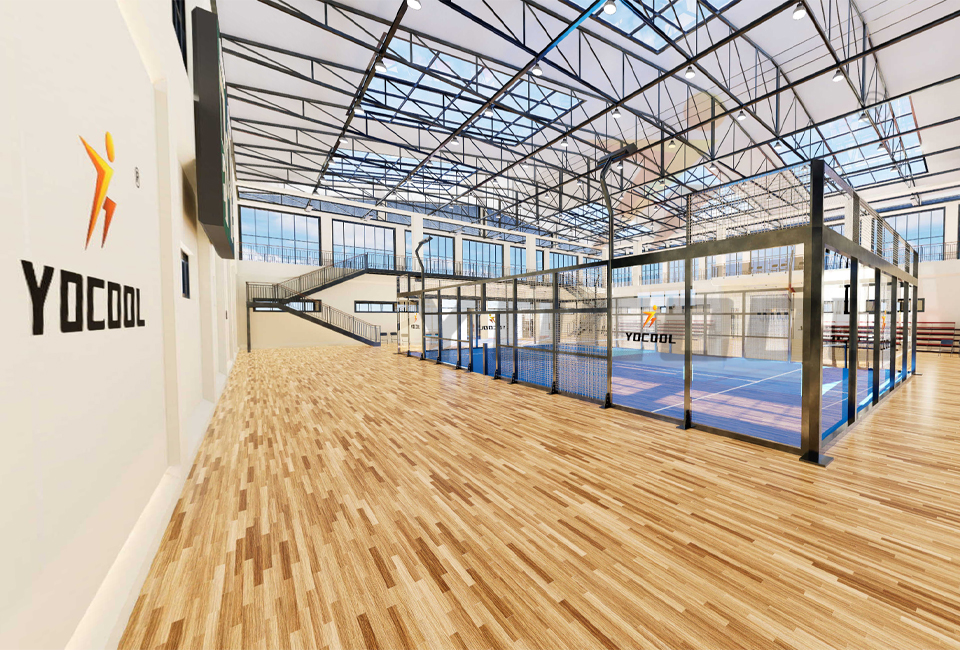

The Evolution and Importance of Padel Glass Factories
Padel, a racquet sport derived from tennis and squash, has gained immense popularity in recent years. As its fan base grows, so does the demand for high-quality padel courts, where design and materials play a pivotal role. Among these materials, glass stands out, particularly in the construction of the court's surrounding walls. Padel glass factories have become crucial in meeting this demand, leading to a fascinating evolution in manufacturing processes and material science.
The Role of Glass in Padel
The game of padel is unique, characterized by its enclosed court and the use of walls as part of the gameplay. Glass, often used in the side and backwalls of these courts, serves several vital functions. Firstly, it allows spectators to view the match from all angles, enhancing the spectator experience. Secondly, glass has superior acoustics, capturing the sounds of the game, which adds to the ambiance of the experience. Lastly, the walls are designed to be durable while ensuring the safety of players, making glass an ideal material choice.
The Manufacturing Process
Padel glass factories focus on producing tempered glass, a safety feature that withstands impact much better than standard glass. The manufacturing process begins with selecting high-quality raw materials. Silica sand, soda ash, and limestone are typically used, which are melted at high temperatures to form molten glass. This glass is then shaped and cooled in a controlled manner through a process known as annealing to relieve internal stresses.
Once the basic glass sheets are formed, they undergo tempering. This involves reheating the glass to around 620 degrees Celsius and then rapidly cooling it. This process not only increases strength but also ensures that if the glass does break, it shatters into small, blunt pieces, reducing the risk of injury to players.
Technological Advancements
Innovation has been a significant driving force in the evolution of padel glass factories. The introduction of digital technologies has streamlined production lines, increasing efficiency while maintaining quality. Automated cutting machines ensure precise dimensions, while computer-controlled tempering furnaces guarantee uniform quality across all glass panels produced.

Moreover, advances in coating technologies have allowed manufacturers to create glass with specific properties, such as UV resistance and anti-reflective coatings. These enhancements not only improve the overall performance of the glass in varying lighting conditions but also prolong its lifespan, making it a valuable investment for padel court owners.
Environmental Considerations
As concerns about sustainability rise, padel glass factories are also adapting by using eco-friendly practices. Many factories are now recycling glass waste and employing energy-efficient technologies in their operations. The use of recycled glass not only minimizes waste but also reduces the carbon footprint associated with new glass production. Additionally, factories are exploring the use of energy sources such as solar power, further integrating sustainability into their manufacturing processes.
The Future of Padel Glass Factories
Looking ahead, padel glass factories are poised for continued growth. With the sport expanding into new markets across the globe, the requirement for high-quality courts will inevitably rise. This presents not only an opportunity for manufacturers to innovate and increase their production capabilities but also for the sport to reach new heights in popularity and accessibility.
Emerging markets in Asia, North America, and Eastern Europe are showing heightened interest in padel, driving demand for modern, well-equipped facilities. Consequently, investment in padel glass factories is likely to gain traction as entrepreneurs recognize the potential of this rapidly growing sport.
Conclusion
In summary, padel glass factories play an exemplary role in the evolution of the sport, contributing to safety, aesthetics, and functionality in court design. As technology progresses and sustainability becomes a priority, these factories will not only keep pace with the growing demand for padel facilities but also lead the way in innovative practices within the sports industry. The future of padel, mirrored in the glass of its courts, is bright and full of promise.
High-Performance Industrial Flooring Solutions China Paddle Tennis Court for Sale
High-Performance Industrial Flooring Solutions Durable & Cost-Effective
Homogeneous Transparent Floor – Durable & Stylish Rubber Floor Solutions
Premium Homogeneous Transparent Floor for Durable & Stylish Spaces Rubber Floor Solutions
Premium Sports Floor Solutions Durable PVC Sports Floor & Rubber Floor for Gyms
Durable Rubber Composite Floor Premium Rubber Floor & Mats Solutions